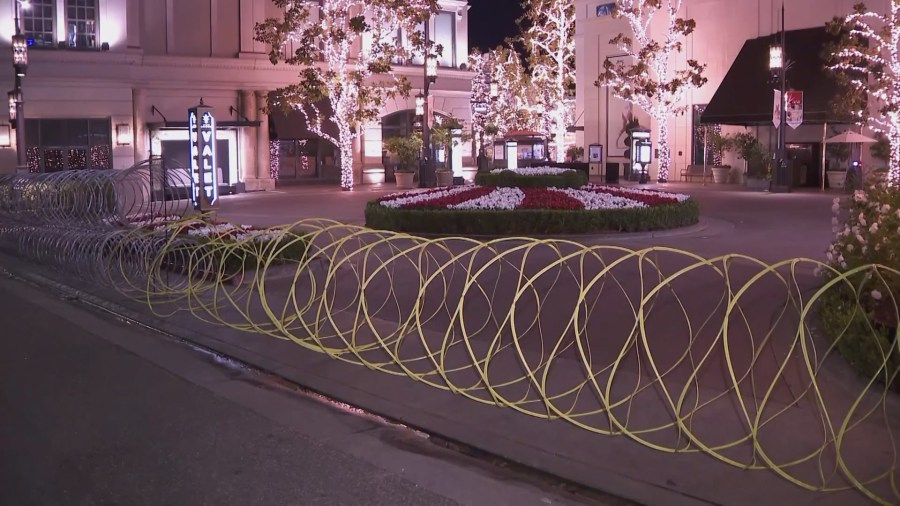(NewsNation Now) — In an effort to combat a wave of retail thefts and smash-and-grab robberies, some retailers are setting up coiled wire — not unlike what can often be seen outside a prison — to act as a barrier between potential thieves and high-end merchandise.
The product is called concertina or tangle wire, and its Slinky-like design acts both as a deterrent and a means to slow down thieves.
It’s also safer than the alternative razor or barbed wires, said Josh Nielsen, the vice president of Adamson Police Products. Although it’s not impenetrable, it does work as a visual deterrent and has the potential to slow down thieves in time for police to apprehend them, Nielsen said.
“If somebody’s running, trying to get through something quickly, they are going to have to navigate it and get tangled up,” Nielsen said.
As the security measure is erected at shopping centers including The Grove in Los Angeles, suppliers have said they can’t keep it in stock.
“We are getting phone calls constantly for this,” Nielsen said.

A recent National Retail Federation report found that in response to organized crime and in-store attacks, 50 percent of retailers are dedicating money to specific loss prevention equipment. The other half are turning to technological resources that will help them report activities and track data.
The federation says organized retail crime costs businesses an average of $700,000 per $1 billion in sales.
Although incidents of organized retail crime were rising before 2020, a shift toward shopping online, where stolen goods often are sold, has exasperated the issue, according to the NRF. As some retailers wait for a more robust and collaborative response from law enforcement and legislators, security measures such as the concertina wire are additional tools for guarding against theft.
“(Police) are doing (the best) they can with the tools provided, and this is one of those tools that we’re trying to aid them in,” Nielsen said.
Ideally, the responsibility of retail workers and shoppers wouldn’t be placed on one entity alone, Rob Karr, president of the Illinois Retail Merchants Association said.
Instead, law enforcement, legislators, retailers and court officials need to work collaboratively to come up with solutions that better protect everyone, he said
Until then, brick-and-mortar stores must continue to operate the way they always have.
“(People) want to come in, touch, try, see, feel,” Karr said. “We’re public-facing. That’s the only way retail works.”





